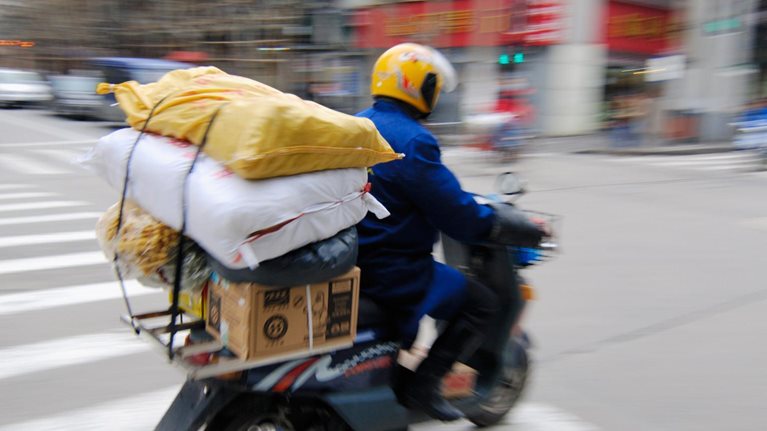Agrokor is Croatia’s largest private company and one of Europe’s largest family-owned businesses. It has a presence in several industries, including agriculture, food production, grocery and nonfood retail, and tourism. Having acquired Slovenian grocer Mercator in 2014, Agrokor now operates a €6 billion retail business with approximately 2,000 stores across five countries in southeastern Europe.
Overseeing Agrokor’s retail interests is Ante Todorić, who was groomed for the job from a young age—after all, it was his father, Agrokor president Ivica Todorić, who started the company as a small business selling flowers and seedlings in 1976. Ante Todorić joined the company in 2006 and is now the executive vice president in charge of its retail business.
In July, he sat down with McKinsey’s Tobias Wachinger and shared his thoughts on Agrokor’s recent growth.
McKinsey: Agrokor roughly doubled the size of its retail business after acquiring Mercator. Had you been planning that deal for a long time?
Ante Todorić: Yes, we’d been thinking about the merger for many years. Let me give you a little bit of company history: in 1994, Agrokor acquired the Croatian grocery retailer Konzum, which was a €300 million business with 200 stores in Zagreb. Over the past 20 years, Konzum’s revenues have multiplied tenfold. As of last summer, Konzum was a €3 billion business operating about 1,000 stores in three countries: Croatia, Bosnia and Herzegovina, and Serbia. As we were going on this expansion journey, we realized that we have a good retail formula—we know how to build successful stores in which customers like to do their grocery shopping.
So, as far back as nine years ago, we began discussing the possibility of merging with Mercator, our main competitor, and thereby becoming the largest retailer in the region. Mercator’s supermarket format was comparable to Konzum’s and it was, like Konzum, highly appreciated and highly rated by customers. But its footprint was a little different, which made it an attractive target for us: Mercator was big in Slovenia and Montenegro, where Konzum didn’t have a presence. Mercator had opened some stores in Croatia and Bosnia and Herzegovina, where Konzum was already the clear retail leader. In Serbia, Konzum and Mercator had businesses of similar size.
In the past three years, we did a lot of work to finalize the acquisition. It was a complicated process, but we finally closed the deal in September 2014. We’re now the proud owner of Mercator. And we’ve become the market leader in all five of these countries, as well as the leading retailer in the Adria region.
McKinsey: It’s now been almost a year. Has the acquisition met your expectations?
Ante Todorić: Absolutely. We are seeing improvements in the business and leveraging substantial synergies, which justify the big investment we made. We’re convinced that the acquisition was the right move. But I must say that the work has not become less intense—rather, it’s the opposite.
McKinsey: Say more about that. What aspects of the integration have required intense work?
Ante Todorić: We were well prepared before we closed the deal; hundreds of colleagues on both sides had prepared for the integration. Since September 2014, we’ve become even more structured and disciplined. We set up cross-country projects for all key retail functions—from purchasing, assortment, and private label to store operations, logistics, utilities, and IT. For each of these, we have a clear plan and well-defined targets for improvement. Everyone understands their responsibilities, both within each country and for the overall company. We meticulously monitor these projects to ensure that they deliver. And that is hard work: it means tracking the implementation of each of the improvement ideas and providing support whenever it is needed.
Of course, the success of these postmerger projects is the top priority for all managers. For the past year, we—the retail managers of Agrokor and Mercator, the country managers, and key functional managers in critical departments such as purchasing and HR—have sat together for an entire day every week to make sure that we develop the right strategy and the right solutions for whatever issues arise.
In doing all this, we’re taking advantage of the fact that both Konzum and Mercator have invested immensely over the past few years in learning how to run an excellent retail chain. Each of the countries is good at something and serves as a benchmark for the other countries to follow. We’ve also benchmarked ourselves against European best-practice retailers in areas such as loyalty-program design and private label, and we’ve tried to make our benchmarking as detailed as possible. We’ve talked to countless experts.
We’ve done all this because we want to excel. I firmly believe that we will succeed in the long run only if we can deliver the best offer to our customers while also having the most efficient cost base.
McKinsey: It sounds like you’re focused on not just merger-related synergies but more broadly on best-practice transfer across all the countries in which you operate.
Ante Todorić: Yes, exactly. It doesn’t really matter to us where an idea for improvement comes from or whether it’s related to scale or to synergies. We want to become better and better, and to do that we need to pursue all avenues for improvement potential.
McKinsey: You now have stores in five countries from the former Yugoslavia. These countries share a difficult past. Was it challenging to bring the various countries’ management teams together and get them to all go in the same direction?
Ante Todorić: It was—and continues to be—a major challenge, for sure. Our countries are very different, not just in culture and mentality but also in economic terms. Slovenia, for example, is at a completely different level of GDP per capita than, say, Bosnia or Montenegro. So of course we need to take into account that the cost structures of the countries are different and that retail prices are different. But taking such differences into consideration is something that every multicountry retailer needs to do. At its core, retail is a local business. We need to serve local customer needs, meet local assortment requirements, recognize local mentalities, and of course hold our own against local competitors.
What we want to achieve is the right mix—the perfect balance of getting everyone to march in one direction toward best practice and of maintaining the local spirit of the countries. Therefore, we constantly need to question whether that one direction is the right one in a specific market. We always need to make sure that we have great local leaders in each country who understand how best to be competitive in that country. I believe we’ve come to some good decisions in each country.
There are also significant differences in corporate culture. Mercator comes from a history of being a Slovenian state-owned company; Agrokor is a Croatian owner-led company. There are big differences in how people think about problems, how they deal with challenges, how much they rely on analytics, how they develop pragmatic solutions, and so on. We all need to bear in mind that there are fundamental differences that stem from each company’s past. So far, I believe we have managed these differences successfully—by creating cross-country projects, by making sure that both sides are driving projects for synergy creation and best-practice exchange, and of course by having all top managers from both sides take part in the frequent, long meetings I mentioned. We’re proud that we’ve taken the best of both cultures and made it into a productive collaboration.
But I’m aware that we are not yet done with the integration. We need to always be careful to not take things for granted.
McKinsey: You say you are not done yet. How long do you think it will take to fully integrate the companies?
Ante Todorić: I think about this effort as having three layers. The first layer consists of the strategic pillars and decisions—regarding store formats, banners, assortments, and key processes—that we now have in place, for the most part. The second layer, the fine-tuning, will take another two or three years, and we will be in even better shape after that’s done. Then there is a third layer, made up of the things that will need to stay local and might never be fully integrated.
Our work is already paying off—this year we will see good results, and next year we hope to see even better results. But we are a company that never stops. We’re always looking for the next things to work on and improve: how we present fresh products in the stores, how to optimize promotions, and so on.
McKinsey: Do you think this acquisition and the integration have changed the way you lead?
Ante Todorić: This merger was one of the biggest business transactions in the history of our region. I believe everyone who has been involved in such an effort should be thankful. It has been a huge learning experience for me. We touched so many levers. I saw—and am seeing—so many different business practices across countries and stores, and I deal with so many different managers from different cultures. I feel much stronger and more confident as a leader than I did even just a few years ago.
Despite the hard work, this effort is incredibly energizing. I am learning something new daily, and I have the pleasure to coordinate a group of excellent managers and experts. To be clear, this merger was possible only because we have strong leaders in all the countries. The success of a merger like this depends on the leaders who are driving it. I am grateful to have so many people I can rely on—and I do rely on their daily work, their ideas, their stamina, their desire to become better all the time. I am very proud to work with these people in such a culture and spirit.
Download the full report in which this article originally appeared, Perspectives on retail and consumer goods, Number 4, Autumn 2015 (PDF–7.01MB).

